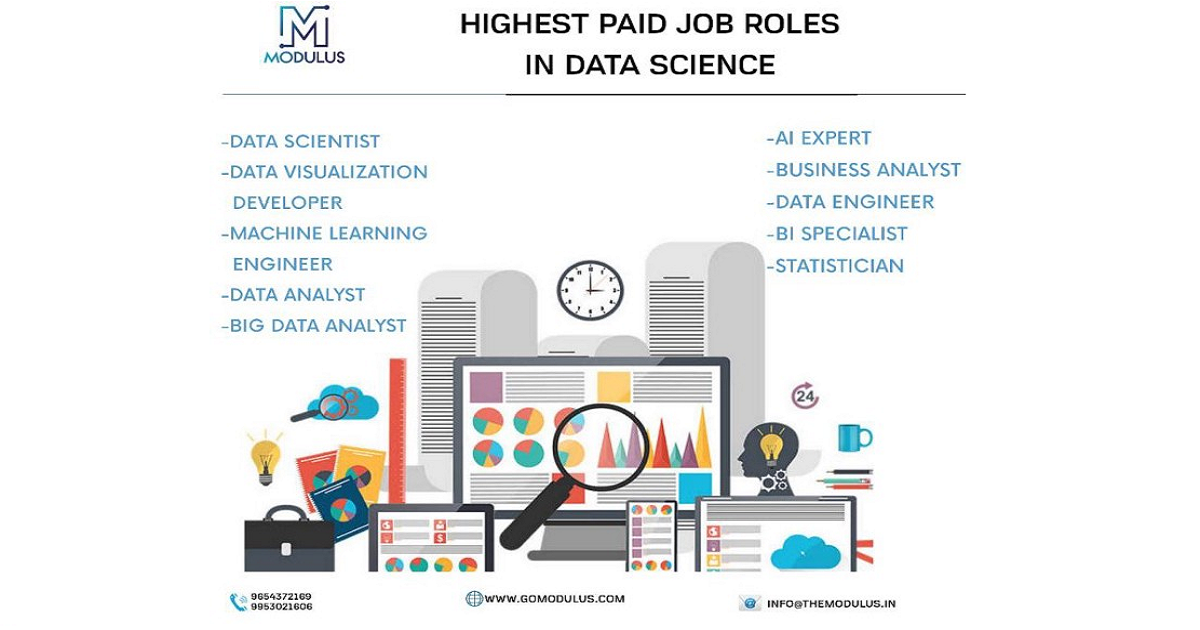
Education Technology
Article | October 7, 2022
As a learning method, social and emotional learning (SEL) has solidified its importance in nurturing children to become thriving students.
But SEL programs are not just a nice-to-have. They need to be implemented fully, and educators must understand their role and implement it to their full strength for it to be successful. Here are five best practices for educators when navigating an SEL program at their schools.
Acknowledge the Significance of Educator SEL
Often, educators and administrators are so occupied with achieving measurable metrics and tracking quantifiable KPIs that SEL programs seem redundant. Educators’ embodying SEL is just as essential to its success as implementing it for students. A research paper by Edward Fergus and Anne Gregory concluded that the educator’s social and emotional capabilities are just as critical to the success of SEL programs. Schools must outline ways to support teachers in order for SEl to be effective.
Make SEL Meaningful for Educators
Schools and districts don't have much free time, but implementing teacher-first SEL is not a privilege but a necessity, particularly after a challenging couple of years. Set time during meetings to discuss SEL, reflect, and connect with fellow teachers to imbibe SEL.
Promote Introspection
Education leaders should promote the embedding of SEL into teaching practices. Encourage asking questions such as, what teachers have learned in the past couple of years, how they have connected with students, and how to reimagine lesson plans in the light of SEL?
To Conclude
SEL should be embedded in the DNA of learning and education. The more connected educators are with the principles of SEL, the better they are able to impart it to students and stay prepared for disruption in learning methods.
Read More

Education Technology
Article | July 14, 2022
We’ve heard a lot about the role of technology in pandemic education, and for good reason: Digital solutions enabled school communities to maintain learning through uncertainty and interruption none of us could have imagined.
However, the triumphs of edtech have been paired with critical challenges. Since the pandemic closed schools in March 2020, school districts have invested in getting students access to computing devices and the internet.
Technology-hesitant teachers became technology-proficient as they learned to navigate remote teaching and learning in impromptu virtual classrooms. Still, with all of the progress we made in digital learning, the interruption of the face-to-face social aspects of the classroom experience resulted in the students finishing the 2020-2021 school year four to five months behind in reading and math on average, according to a recent study from McKinsey & Company.
We’re starting to see the promise of digital learning take hold; teachers can use software to differentiate and personalize instruction. But we can’t stop here. Over the last 18 months, “technology” has been a synonym for “virtual,” where many kids felt isolated, sitting behind a device and craving connection with their peers and teachers.
We now have the opportunity to take what we have learned and use it to usher in a new era of education — one that is powered to a meaningful degree by technology yet centered on human connection, and one where we reject the false choice between engaging software and an incredible teacher. As we return to school this fall, we can blend the best of technology with the best of the classroom experience.
HMH recently shared results of our annual Educator Confidence Report, and the findings provide critical insights into the characteristics that should define the post-pandemic classroom.
Over 1,200 front-line educators from across the U.S. responded, and while optimism has fallen (only 38% of educators reported a somewhat positive or positive view of the state of their profession), confidence in the mastery and benefit of learning technologies is on the rise.
We’re moving from digital promise to digital proof. Despite a tumultuous year, teachers’ current views on technology provide a bright spot, paving the way for more purposeful use of digital solutions.
Educator confidence in using edtech is at an all-time high since we began this survey seven years ago, with 66% of teachers very or extremely confident in their abilities. Many credit their experience of being thrown into the deep end in March 2020. Today, a nearly unanimous 95% of teachers have experienced the benefits of edtech, and 77% believe tech will help them be more effective teachers post-pandemic.
Of critical importance is the type of benefit teachers are experiencing. 81% report at least one of the following top three benefits, all of which are highly student-centric: improved student engagement; differentiated, individualized instruction; and flexible access to instructional content.
Despite technology playing a larger and more effective role, educators report that there are still critical barriers to access and efficacy that must be addressed, including lack of devices and internet access. 57% of educators also indicated that lack of student engagement with tech is a major barrier. More than half told us that the lack of time to plan for integrating digital resources into instruction was a top challenge.
Students’ emotional well-being is educators’ top concern
We all recognize that at the center of teaching and learning is the strong connection built and nurtured between teacher and student, which serves as the foundation for academic and social-emotional growth and drives engagement. We cannot let technology that breaks that connection and isolates students obscure that critical relationship, and data from this year’s survey is an important harbinger.
Among educators, 58% are concerned that students will demonstrate increased social-emotional needs after the pandemic, and social-emotional needs broadly remained the top concern this year (ahead of teachers’ own salaries and concerns about students falling behind). In addition, 82% of educators believe a well-crafted, fully integrated social-emotional learning (SEL) program will have an impact.
Ultimately, to begin to recover and transition into our “post-pandemic instructional model,” we can benefit from a best-of-both-worlds approach that fuses the power of technology with the tried-and-true social gathering of the classroom — “high-tech” working in a mutually reinforcing way with “high-touch.”
Educators’ unique experiences shed light on what the classroom of the future will look like
Technology alone will not usher in education’s new era. It is critical that we leverage digital solutions with a community-oriented, connected and human mindset.
At HMH, we strive for an edtech ecosystem that drives engagement, not isolation; for solutions that offer actionable data and insights that allow teachers to differentiate instruction, not simply “a page under glass”; for innovations that do not add to educators’ full plates, but rather extend their capabilities and give them time to focus on the social-emotional needs of their students.
We heard loud and clear that educators believe in the potential of technology to accomplish these goals — 82% of educators believe customized learning for every student will transform learning and teaching in the future, and 75% believe technology solutions that connect instruction and assessment on one platform will be essential to this transformation.
Edtech’s potential has been unlocked at an exponential rate over the past year, but the future of the classroom is not merely high-tech. It is high-touch, too.
When we asked educators what they are most looking forward to post-pandemic, the answer was clear — being together with their student community: 80% cited interacting face-to-face with students, 74% said more student engagement and 63% noted student collaboration opportunities.
The passionate discussion around in-person versus digital learning is too often shortsighted in its creation of a strict binary — digital or analog. But our greatest success will come from embracing the fact that these are not opposing forces; they are complementary force multipliers.
We’ve lost a great deal over the last year, but we’ve also gained important ground — and we can continue that momentum. As a society, we will continue to assess the health risks before us and navigate an increasingly hybrid world that includes our workplaces, neighborhoods and, of course, our schools.
I believe that as we do ultimately return to our school buildings, we’ll be ready to usher in a new era of learning, one powered by tech and innovation but forever defined by the community of teachers and students at its heart.
Read More

Education Technology
Article | August 4, 2022
When we talk about technology in current time and age, the first thing that pops up in our head is Data Science. There are a million reasons for saying so. The market is full of job opportunities, multiple field applications, growth, higher demand and much more. Data Science is not like other technologies which come and go instead; it is here to stay. Why I say so is that this stream has multiple co-streams that have sub-streams and the web is getting dense. The best part is due to its universal usage the technology is developing at lightning speed. Due to its high demand and lack of supply, the salary bracket of a Data Scientist is way more when compared to other technical streams irrespective of your experience.
Read More

Education Technology
Article | December 9, 2021
After almost two years of disruption due to the pandemic, our ongoing recovery has highlighted the value of embracing change and working much more flexibly than before, refusing to give up at the first hurdle and a willingness to work together to achieve a common goal. These transferable skills are becoming ever more important for us to thrive in our increasingly automated world, and they are skills that can be developed and embedded through the medium of mathematics.
Fluency, reasoning, and problem-solving are the three foundations of our mathematics curriculum. By valuing them all, we will ensure that our future workforce has the confidence and skills to work together much more effectively to solve problems, overcome hurdles, and sustain our recovery. Let’s begin with fluency. Although AI is becoming increasingly prevalent, benefiting both our social and working lives, we still need number skills, perhaps now more than ever. Too many high-profile technology projects have failed due to basic mathematical errors. We need our education system to nurture the types of number skills needed in industry, especially a much greater focus on using and applying number skills. We must encourage students to develop their confidence in estimating quantities and a willingness to check calculations, even when they’ve used a spreadsheet or calculator.
From NASA’s disintegrating space probes to trains that don’t fit their platforms and submarines that are just too big, the tech world is littered with avoidable, costly mistakes. Acquiring number fluency means developing a ‘feel’ for numbers so that we can easily spot when something is not quite right; the NASA probe disintegrated due to a simple error converting units, the trains would not fit because no-one checked the platform sizes, and the submarines needed refitting due to an error entering spreadsheet error. Each of those three were incredibly costly, totalling millions, if not billions of pounds, but they were all avoidable too. We must nurture a willingness to estimate and develop a ‘feel’ for numbers, known as ‘number sense,’ alongside the more traditional approach of performing more formal calculations when needed. After all, few people head to the shops armed with a pencil, squared paper, and a ruler in readiness to calculate their change at the cash register.
We need to value number sense and rethink our expectations of the primary curriculum.
Encouraging a different approach towards the teaching and learning of mathematics may also help to address the gender imbalance in the subject. If you filled a room with a hundred math professors, the chances are that less than ten would be female. However, female mathematicians have played key roles in the fight against COVID. Mathematical modellers such as Professor Julia Gog, based at the University of Cambridge, drew on her research as an adviser to the government’s SAGE committee.
Nevertheless, even though more students study A-Level mathematics than any other subject, few female students choose to apply to study mathematics at university. My own research with female A-Level candidates reveals their preference for careers which help others and contribute towards a better society.
However, they often do not appreciate how studying mathematics might help them to realise their dreams by helping thousands, if not millions, of others through research on climate change, medicine, and networks.
We know that the gender gap in mathematical performance starts at a young age, and researchers have suggested that the changing expectations in the curriculum as students progress through their schooling might dissuade girls from continuing to study mathematics at a higher level. At primary school, pupils are expected to master written calculations such as long division and long multiplication to achieve ‘age-related expectations.’ However, to progress further, they also need to be able to solve problems, and this seems to be the point where female students lose out.
It has been argued that the switch from being rewarded for learning procedures to solving problems favours boys over girls, and the persistent gender gap in results for higher-achieving primary pupils appears to add weight to that argument. Effort are being made to encourage more females to consider studying mathematics, including the Maths 4 Girls project which organises school visits from female role models and the careers arm of the Institute of Mathematics and its Applications which organises poster competitions to encourage more school students to think carefully about studying mathematics, both projects which I support. Yet more needs to be done.
Our curriculum and assessment system are designed to value number sense, estimating and problem-solving skills and perhaps rethink the time schools devote to rehearsing written calculations. Otherwise, we risk overlooking the huge potential of our current female students to contribute and build on the work of their predecessors, including Florence Nightingale, Mary Boole, Ada Lovelace, and Julia Gog, among many others.
To continue our recovery from COVID and rebuild our economy, we must embrace the potential of mathematics for developing and embedding the skills and attitudes that our students will need to thrive in their increasingly automated world: a willingness to "play" with numbers, estimate and check their answers; an enthusiasm for solving problems and working together; and an understanding that it’s OK to get stuck sometimes. We can overcome the hurdles that we face by working together as a team.
Read More